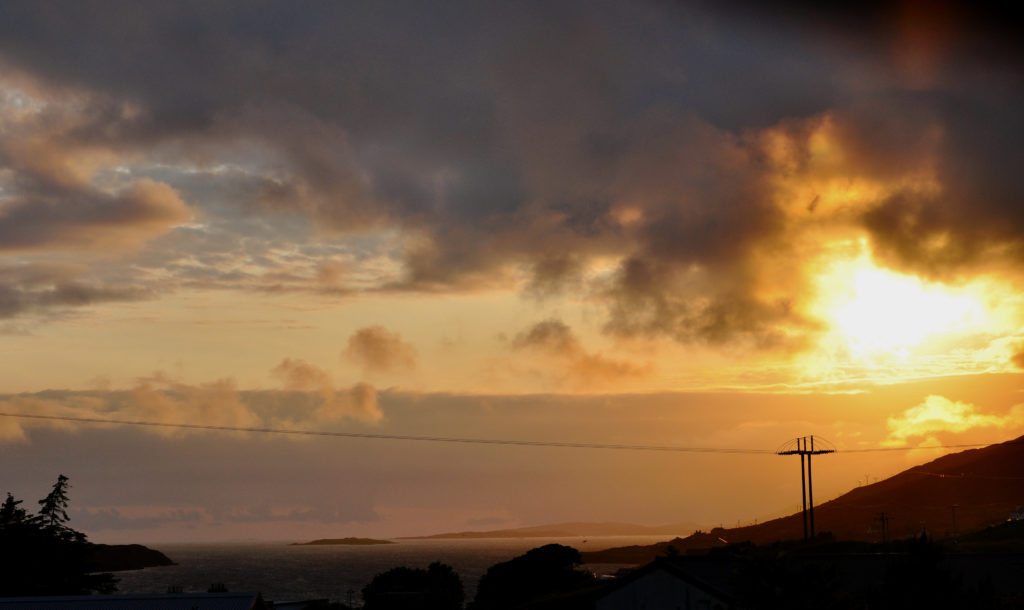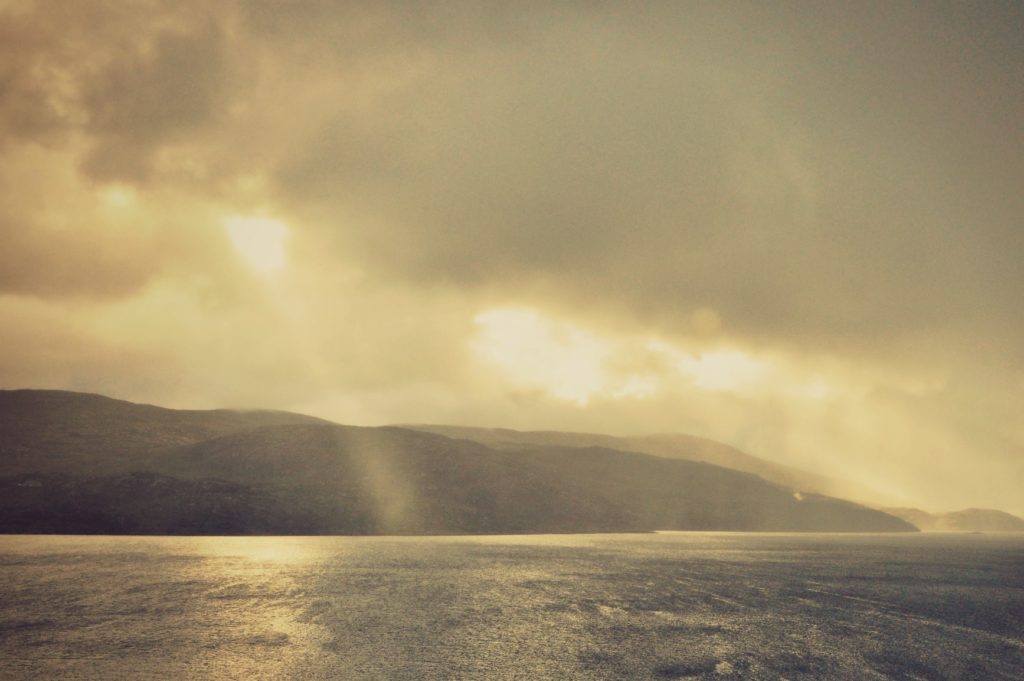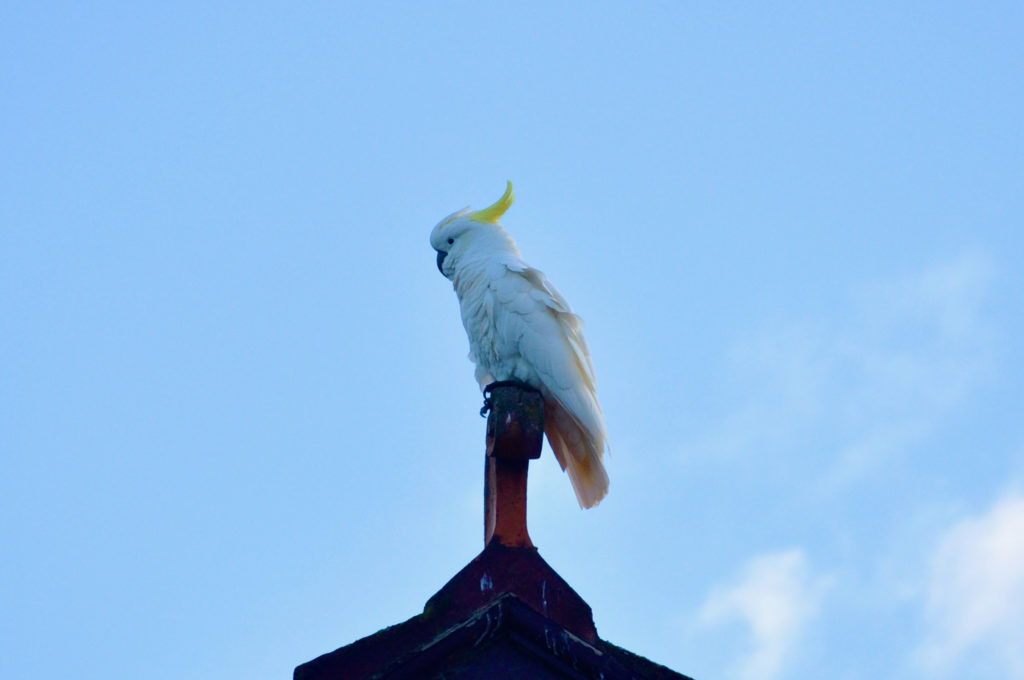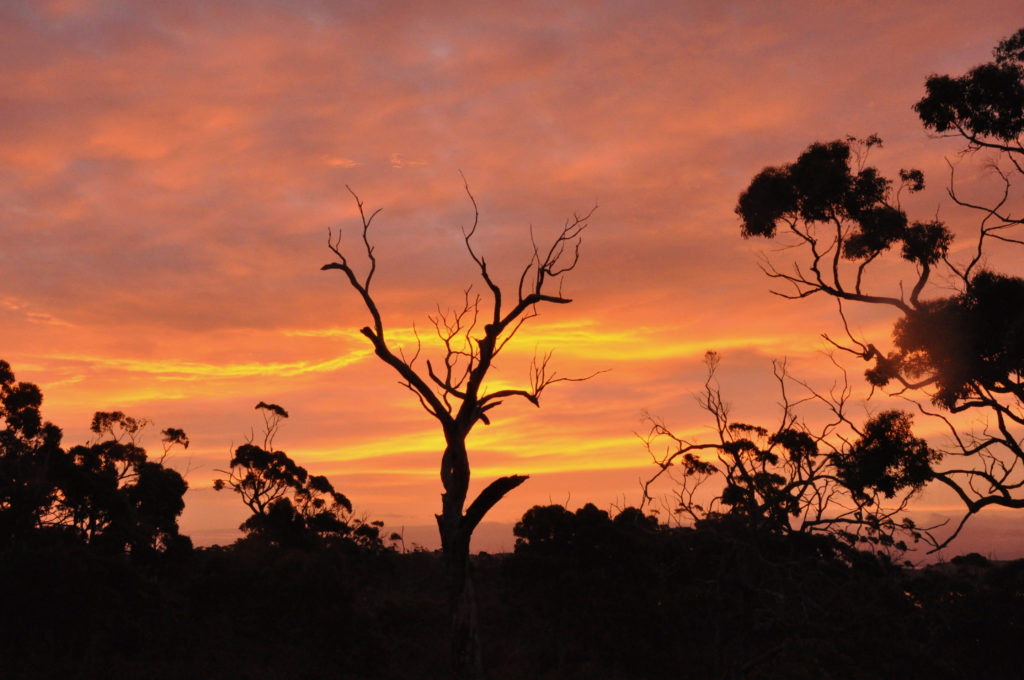Now a long-term resident of Tasmania, Ruth Dawkins returns to her childhood home on the Outer Hebridean Isle of Harris.

“It’s the island that goes away, not we who leave it.”
Iain Crichton Smith, The Departing Island
*
Towards the end of 2018, when international travel was still possible, I returned to the Isle of Harris – the small Scottish island where I was born. The journey from Tasmania, where I now live, required five flights and 35 hours of travel.
Even in pre-Covid days, it was not an easy trip, nor an inexpensive one, and my visit came after a break of more than four years.
That’s the longest I’ve ever been away from Harris, and, unsurprisingly, I found that things on the island had changed.
I found, for the first time, that it didn’t feel like home.
*
Growing up in a tight-knit community of just a few hundred people, I’ve always understood home as a layered concept. My childhood bedroom, with its cornflower blue wallpaper and Barbie dolls scattered across the floor, was home. Our two-storey house was home, with its terraced garden full of gooseberry bushes, and the smell of my mum’s cooking curling out the kitchen window.
But home was also my grandparents’ bungalow, a few hundred metres up the road; it was the nearby hotel run by my cousins; and it was every friend’s house where I could walk through the front door without knocking. Home was the hills and the beaches, where I was allowed to roam unsupervised; it was the rivers, lochs and peatbogs, where I’d crouch down to watch dragonflies hover above the water; and it was the bus garage where I’d climb up to sit on the diesel tank, the smell of oil hanging heavy in the air.
I was lucky enough to grow up feeling safe and welcome wherever I went.
At the same time, living on an island meant living with an intrinsic awareness that other places were possible. There was a window halfway up our staircase with a view to the west across the sea, and I knew that when I pressed my nose to the glass and watched the sunset, observing our day slip into night, it was still afternoon in America.
There were often aeroplanes crossing the sky, and I would lie on my back to wonder where they might be headed. I imagined I could hear the crackle of ice cubes tumbling into plastic cups as the crew worked their way through the cabin.
When there was nothing else to do in the village, I sat on the stone wall by the harbour and watched the ferry come in, counting how many cars drove off the ramp and how many were in the queue waiting to drive on. The very rhythms of island life were based around people coming and going and coming back again.

*
I was seven when my parents separated, and I made the decision to stay with my mum. We moved first to a neighbouring island, then shortly afterwards to the Scottish mainland. But every school holiday I returned to visit my dad. It was a chance to spend time with the friends I missed, and I was reassured by the fact that our routines remained the same: hanging around the petrol station; searching the beaches for driftwood and shells; and walking circuits of the village until late at night, treading our stories into the land.
Even when it had been upwards of ten years since I’d lived there permanently, if I bumped into former teachers or family friends, they would call out to me in the English-Gaelic hybrid common to many Hearachs.
“It’s yourself! When did you get home, mo ghraigh?”
There was no doubt in their minds – or in my own – that Harris remained home.
After I got married in my early twenties, to a gentle, softly-spoken poet from New Hampshire, I couldn’t wait to bring my husband to the island. I felt that to understand that place would be to better understand me. The morning we were due to set off for his first visit – just an hour’s flight from Edinburgh at that point – I had to sit him down for a moment before we left the house. “Guess what?” I said. “I’m pregnant. We’re having a baby.”
It was early days, and we decided not to share the news with my extended family. But somehow – through the protective hand I kept placing on my belly, or perhaps my reluctant shake of the head when a wine bottle was passed around the table – they worked it out anyway.
Over the following years, my husband and I often returned with our son, and I watched as he discovered many of the same simple pleasures I’d enjoyed as a child: pushing the rusty metal roller over the hotel lawn; pretending to row the old wooden dinghy that was parked in my dad’s driveway; and running his hands across the sun-bleached whale bone that was propped by the front path.
He would dig around in dusty boxes at my dad’s house, bringing out Lego figures and matchbox cars that hadn’t just been mine as a child, but had belonged to both my brothers before me. Despite many generous urgings from my dad to take them when we left, my son would always refuse. “I’ll leave them for other people to play with too,” he’d say. “I know they’ll still be here next time we come.”
*
My son’s faith in the unchanging nature of his grandpa’s house was well placed. When we visited last year, those toys were still there. So too was the blue wallpaper of my childhood bedroom – now a home office – and the vertical row of notches in the doorframe that marked my height at every birthday between eight and eighteen.
A few things around the house were new since our last visit. As we squeezed ourselves around the dining table for lunch, I noticed three analogue clocks on the wall – hanging in a row, like you’d find in a hotel lobby. They showed the times for New York, Harris, and Hobart.
In the living room, I was thrilled to see the beautiful oak-cased barograph that had belonged to my grandparents. Since their passing, it had become my dad’s responsibility to wind the mechanism – every Sunday, after church – and to carefully file away the graph paper readings. There was a slim drawer underneath the case that could hold a couple of months’ worth; where they went after that I didn’t know.
The thing that struck me most about the house though was how small it felt. How had my parents ever managed to raise three children in this space? Perhaps the years of accumulated objects were making it feel more cramped, but as I stepped over piles of magazines, and blew cobwebs from the spines of books, I felt like Alice in Wonderland, her limbs pushing awkwardly against the walls and out through the windows as she grew too large for White Rabbit’s House.
At one point after lunch, when the kettle was being boiled for tea, and biscuits were being arranged on a plate, I tried to take a deep breath and felt my chest growing tight. Whether it was dust, or mould, or just the heavy weight of thirty years family history pressing down on me, I wasn’t sure. But I knew I needed to step outside the house for some air.
I opened the door and stood on the top step for a minute, trying to decide which way to walk.
“Mind out for ticks,” my dad called after me. “The deer are everywhere this year, they keep getting into the garden.”
I decided to stick to the path.
*
There is a quote from the writer Mourid Barghouti that I have pinned on the noticeboard above my writing desk. It reads: “My relationship with place is in fact a relationship with time.”
Over the next week, those words kept coming back to me – the urge to accept that when you return to a place it will not be as you remember.
Certainly, the physical changes on the island were striking. At night, sitting in our rental cottage, we could see the lights from a new distillery shining over the village. The glass panes and tall steeple of the modern building reminded me of traditional church architecture, and in an act of ecclesiastical counterbalance that made me laugh, there was now a Free Presbyterian church in what used to be a bar.
Elsewhere, there was a conference centre overlooking my favourite beach, and my old primary school had been demolished to make way for a housing development. Most unsettling was the hillside of pine trees, which as a child I had seen planted by workers from the hydro-electric company – an attempt to shield us from the sight of pylons criss-crossing the landscape. Those tiny saplings had now grown to such a height that my dad said they stole an hour of sunlight from the house each day.
*
In Tasmania, we live across the road from a sports oval. Around the edge are great towering eucalypts that are teeming with life. We wake to the sound of Eastern rosellas, of magpies, of sulphur-crested cockatoos – all taking a moment each morning to celebrate the return of the light.
I hadn’t realised, until we went back to Scotland, how important that birdsong has become to me – how grounded I have become in the physicality of this southern island, this surprisingly lively suburb of Hobart.

I missed walking my son to school, gumnuts underfoot and the scent of the earth all around us. I missed the splashes of red bottlebrush and the currawong that watches as we pass, the air tingling with his quiet energy. I missed rushing from window to window each evening to watch the changing sky, the rainbows, the weather systems passing through. Although we were only away from Tasmania for a few weeks, I felt its absence deeply.
*
We chose our rental house on Harris to overlook the harbour. I had imagined that we would sit on the deck each morning and watch the ferry coming in to dock – I knew we would be close enough to hear the announcements over the tannoy first made in Gaelic and then in English.
But there is a stricken fishing boat stuck at the pier, blocking access to the ramp, and for a whole week the ferry does not sail. I am reminded how fragile the rhythms of a small island can be, how little it takes for life to be disrupted.
We are unlucky on our trip to encounter weather that is appalling, even by Hebridean standards. Before we’d reached the island, as we’d been waiting for our final flight, I had tapped into the free Wi-Fi and read a news report that said heavy rain had caused a landslide, closing the only road between the airport and the village where we were staying.
“Imagine if we came this far and couldn’t actually get there…” I said to my husband. We laughed, in an exhausted kind of way.
The road was cleared in time, and we did make it through. But the rain didn’t let up for the duration of our trip and it contributed greatly to my sense of dislocation. It caused a constant hum in the electric wires that amplified the buzz of anxiety in my body and, now accustomed to the dry, moderate climate of Tasmania, I found myself physically aching for warmth and light.
“Has it always been like this?” my son asked one day, a note of despair in his voice as we peered through the rain-streaked window and watched a waterfall being blown back uphill by the wind.
I screwed my face up trying to remember. Had it always been like this? I didn’t think so.
*
The memories I have of my island childhood are vivid ones. When I close my eyes and picture myself as a little girl in that landscape, it is with a background of colour and chatter from living things. I remember listening out for the first cuckoo of spring, gathering tiger moth caterpillars to house in jars with sprigs of heather, and collecting great handfuls of gossamer bog cotton heads that I would scatter on the breeze.
Returning as an adult, after several years away, I am unable to recapture that sense of connection – that precarious balance of familiarity and marvel that makes a place feel like home.
When you have loved a place deeply, for a long time, there will always be moments to remind you why. I still felt comfortable enough on the island to bang on my auntie’s door and borrow a lobster pot when we realised that our rental didn’t have one big enough. One of my cousins had recently had a baby, a sweet little boy, who surprised and delighted me by falling asleep in my arms during a long, conversation-filled lunch. And in those rare moments when the clouds did clear, when the low tide revealed expanses of seaweed, and shafts of sunlight caught the rocks in a particular way, I was reminded that there is still beauty to be found in more muted colours.
But most of the time, my sense of disconnection was profound. In the tiny local shop, I became flustered and spilled the contents of my purse across the floor as I struggled to find the right change. It was unsettling to realise that the notes and coins I had grown up with were no longer familiar in my hand. When a well-meaning relative said, slightly accusingly, “so much for coming back every two years”, I felt a prickle of annoyance that was disproportionate to the comment.
And when an old school friend stopped me on the main street of the village for a chat, asking me, as she always did, “How long are you home for?” all I could do was stand there, searching in vain for a simple answer. How do you explain to someone you’ve known your whole life that home is not home anymore?
*
The Tasmanian poet and scholar Pete Hay writes, “You don’t inherit place. You commit to it… When you make of a place a home – an affectionately regarded range of ground from which you take identity (literally your ‘home ground’) you inherit an active duty of care.”
On our last morning on the island, my dad came by our rental house to say goodbye. We hugged hard, not knowing if it would be another four years before we would do so again, and as I let go he pressed something into my hand. In a hurry to get on the road, I tucked it into my pocket without looking, and then later into my washbag, which was the only thing left to pack.
It’s not until I get home to Hobart and stand in our bedroom – the floor covered in unwashed clothes and the windows flung open to let in the warm spring air – that I finally take a moment to examine what he’d handed me.

I pull off the elastic band and gently unroll the tiny sheet of paper, laughing as I realise it’s the barograph chart for the week we had spent on Harris – a noticeable dip in pressure midweek the cause of all that rain.
I carefully roll it up again, replace the elastic band, and tuck it back into my washbag, which seems as good a place as any for keeping it.
Outside in the gum tree, a magpie starts to sing.
*
Ruth Dawkins is a freelance writer who has written for the Guardian, Washington Post and Time Out. Find her blog here, and follow her on Twitter here.